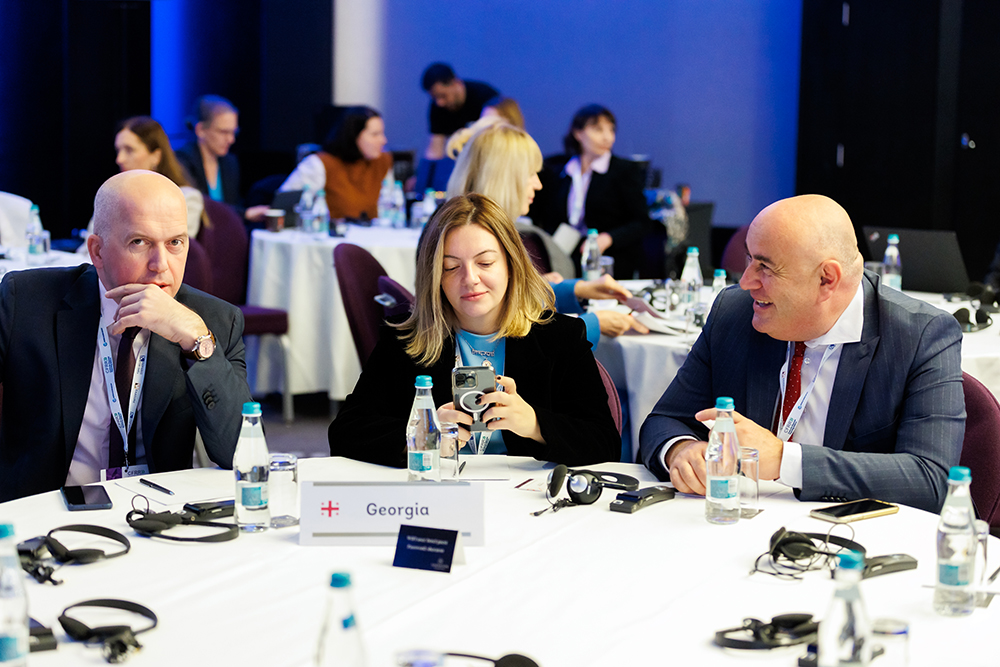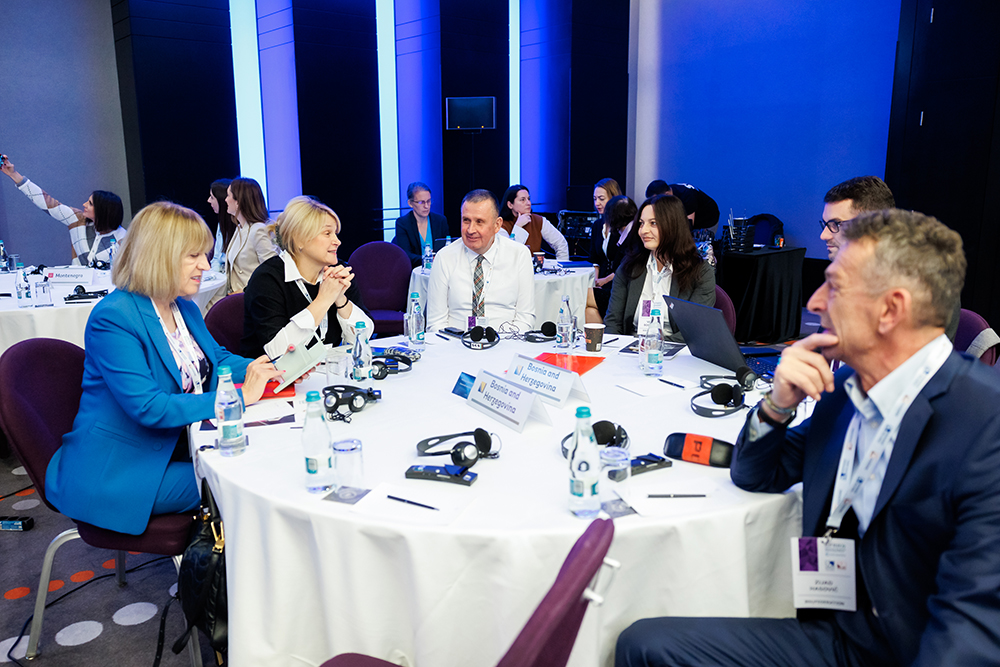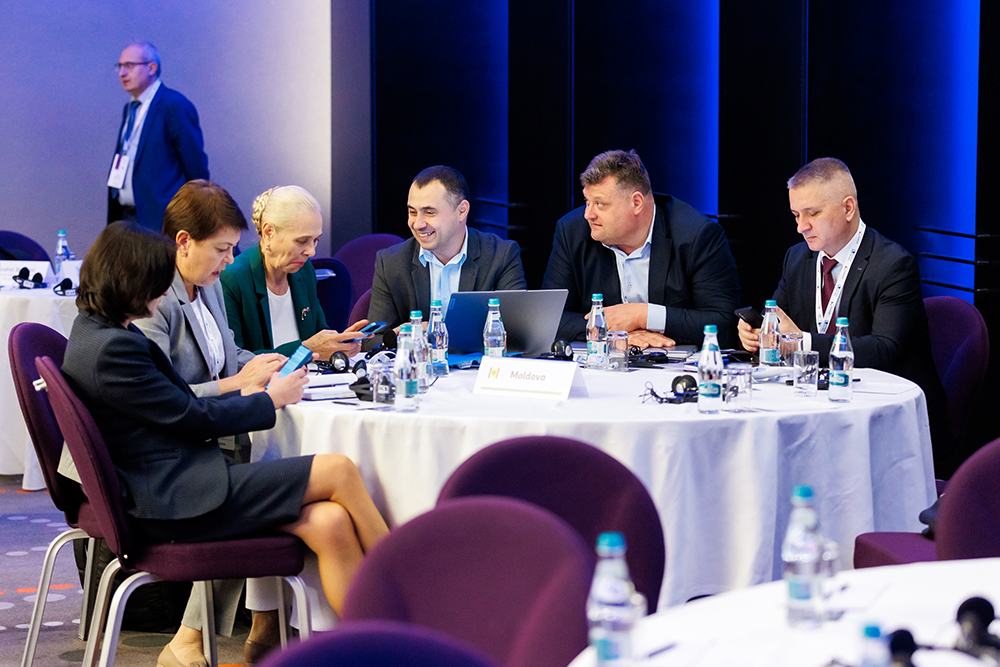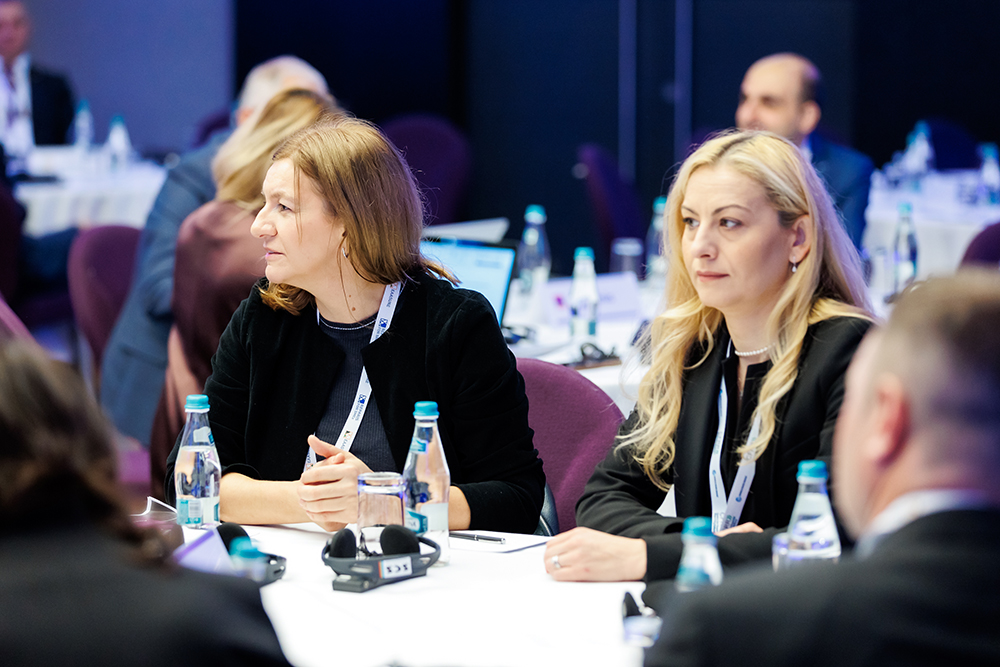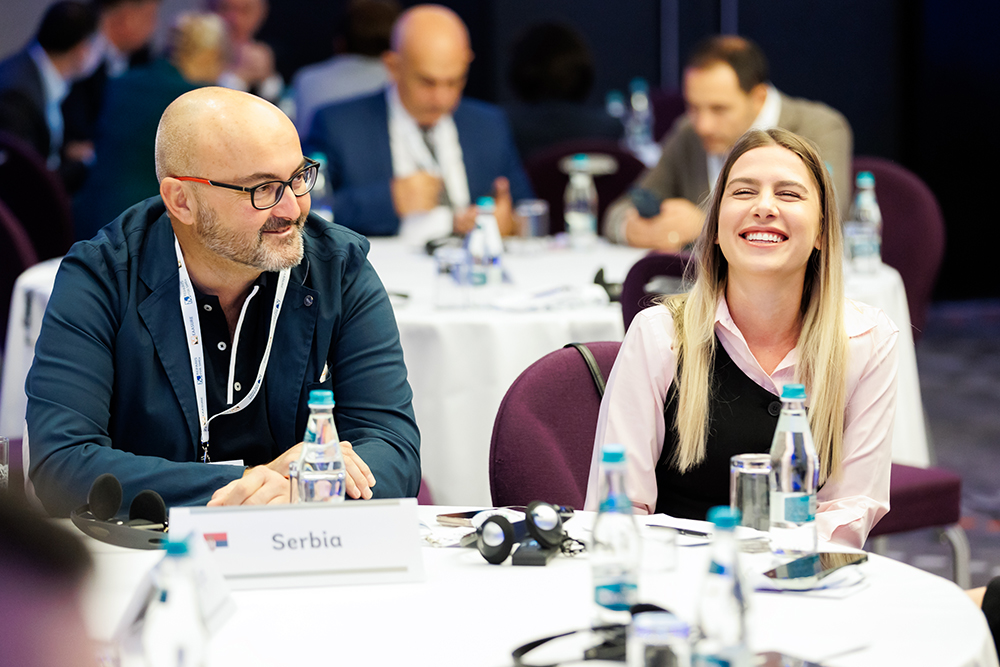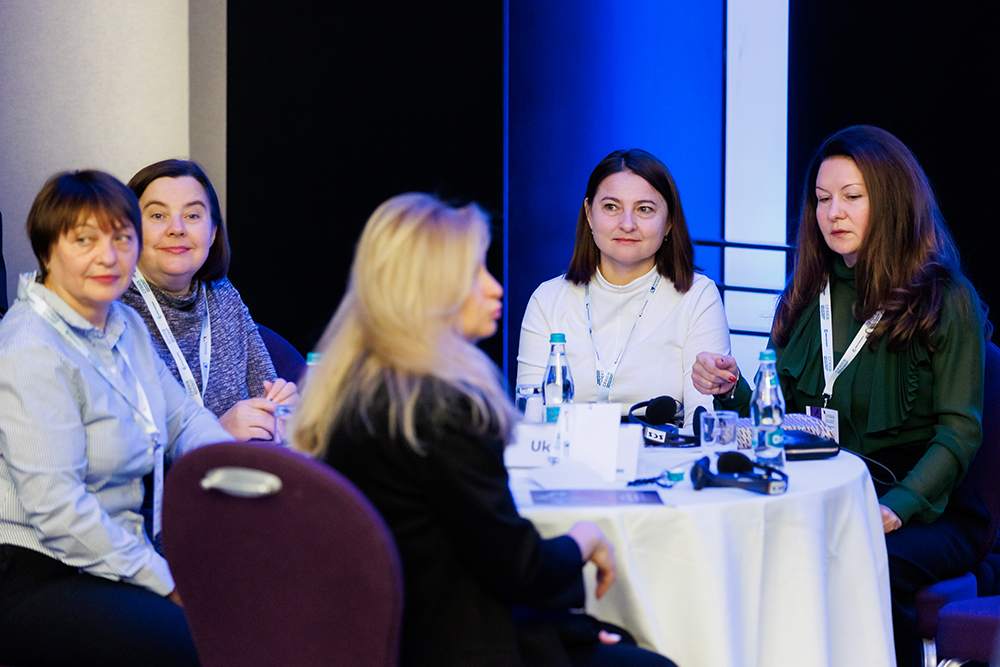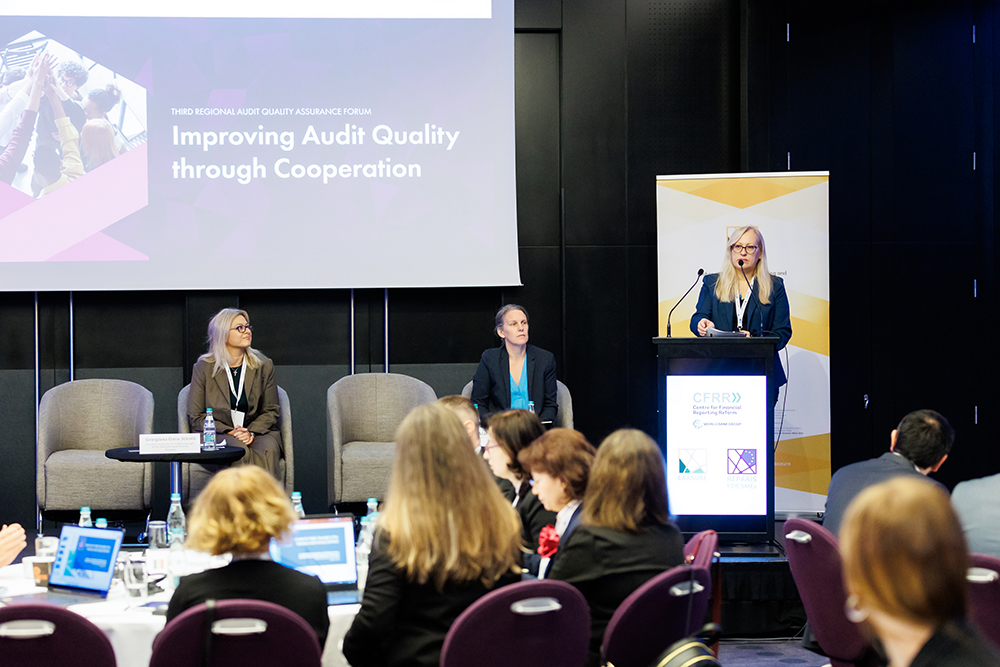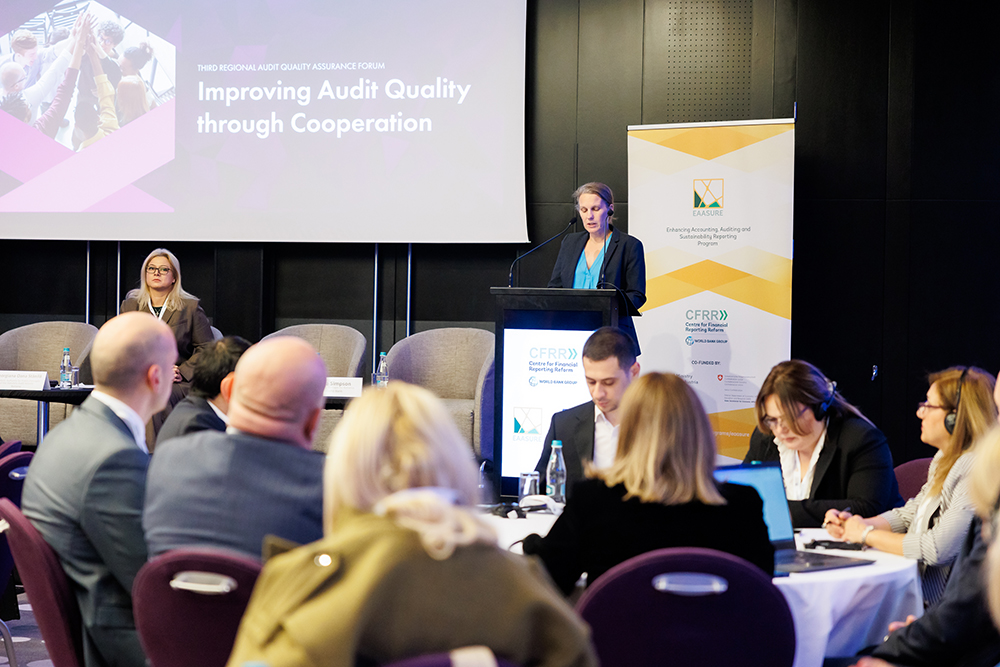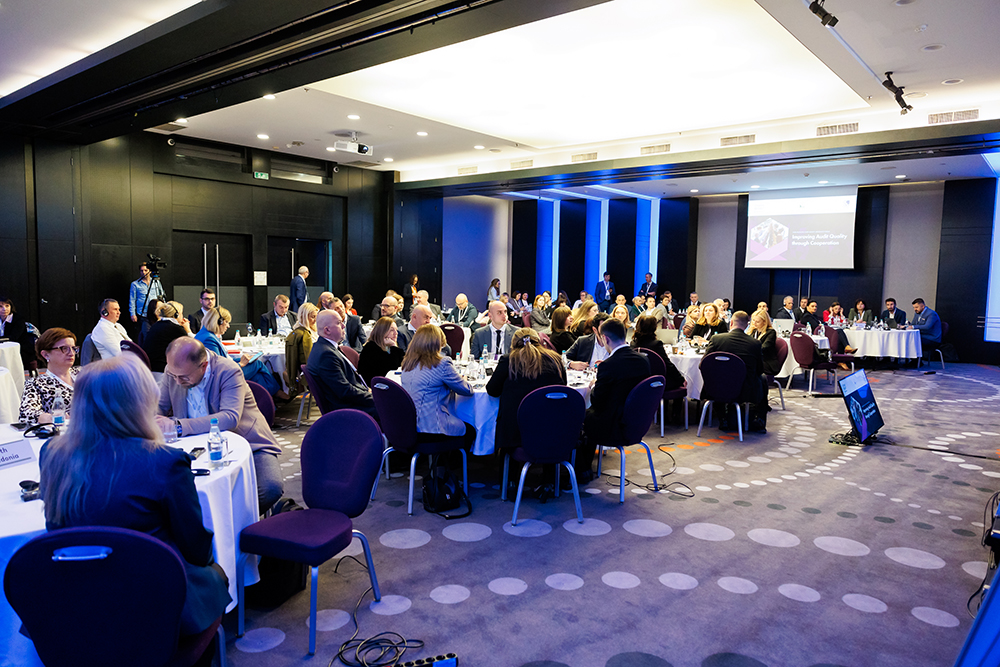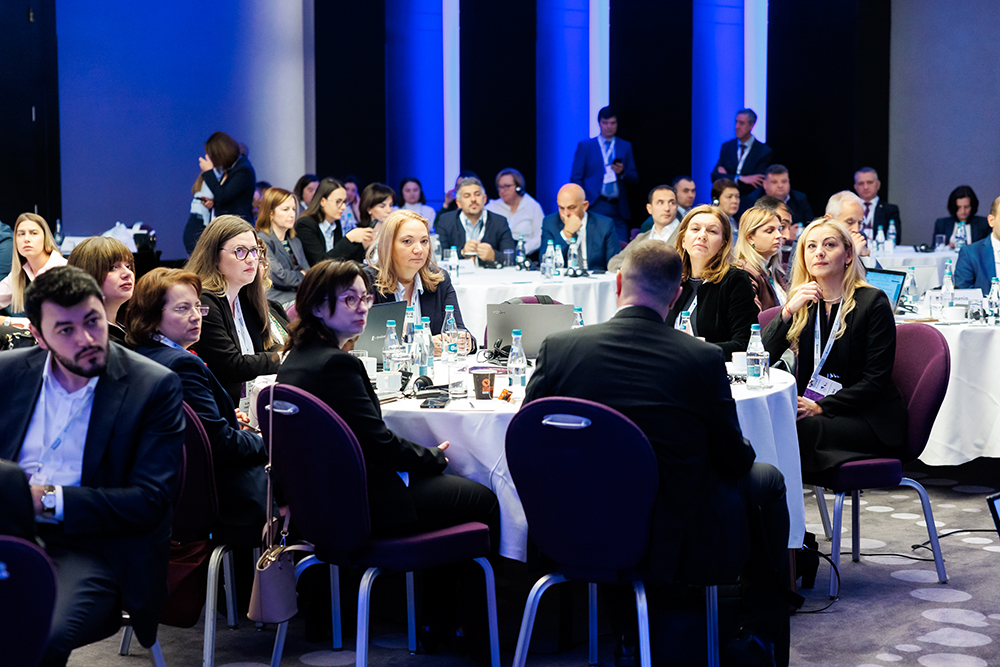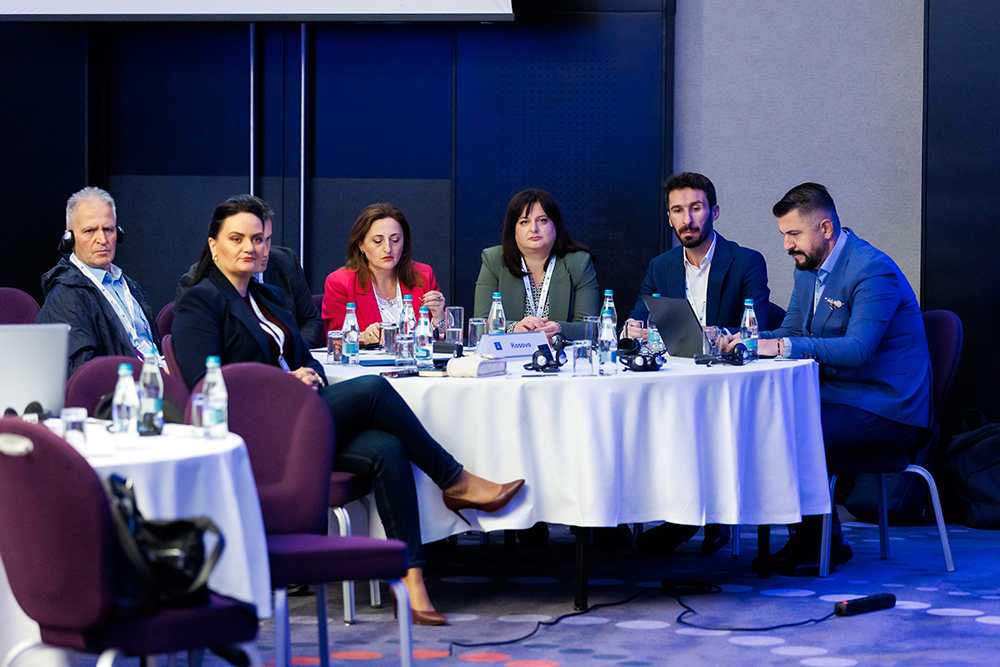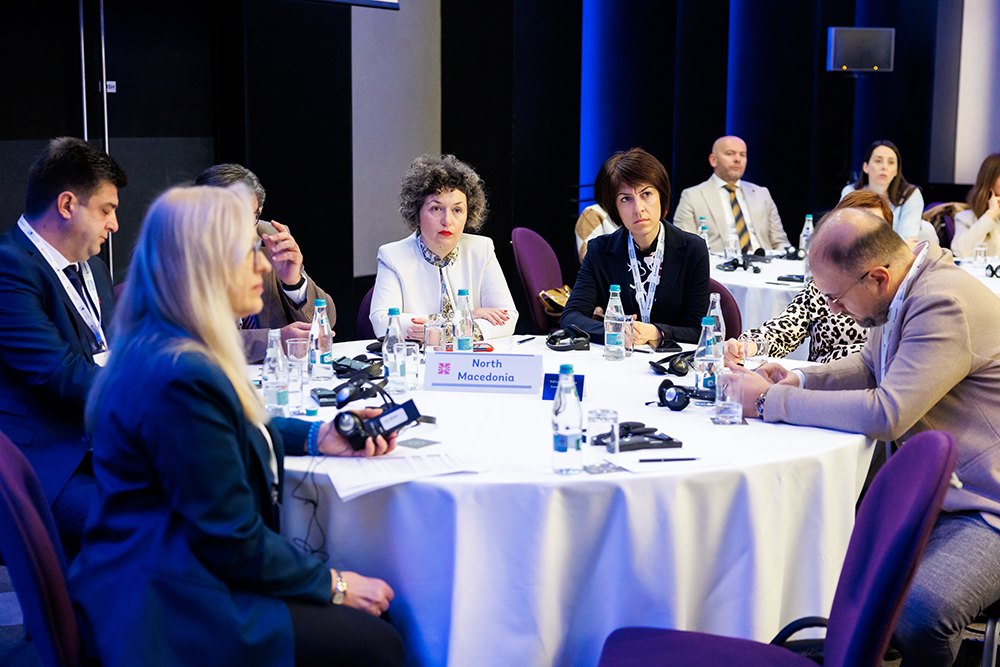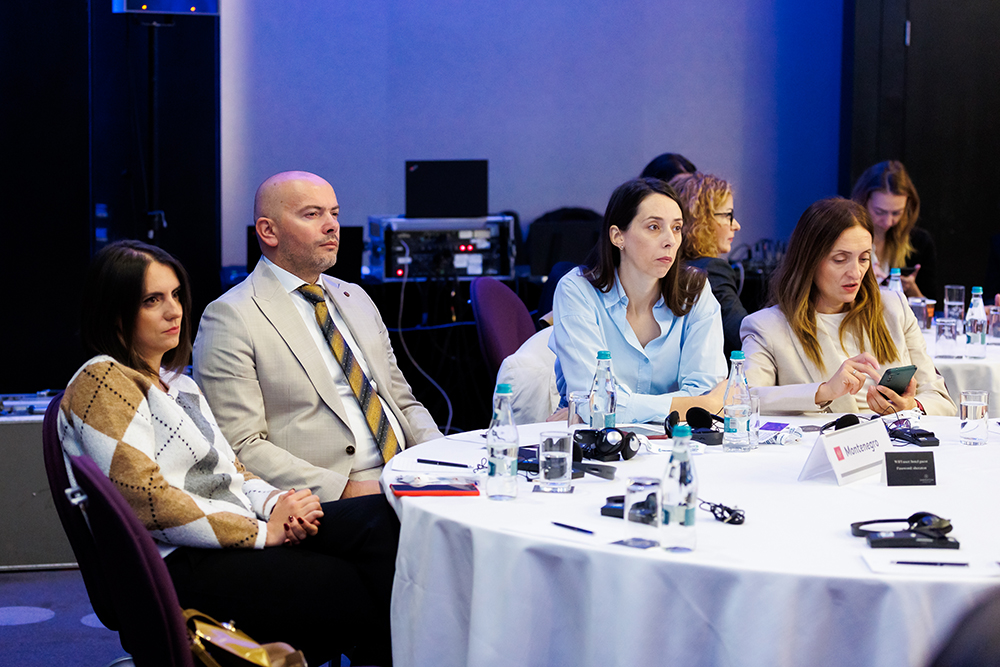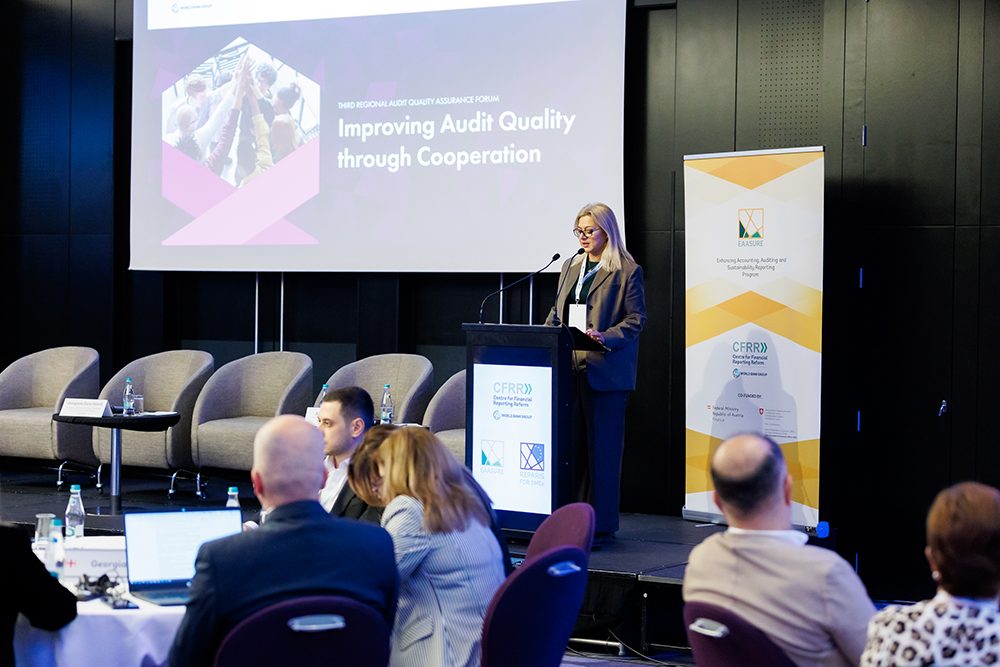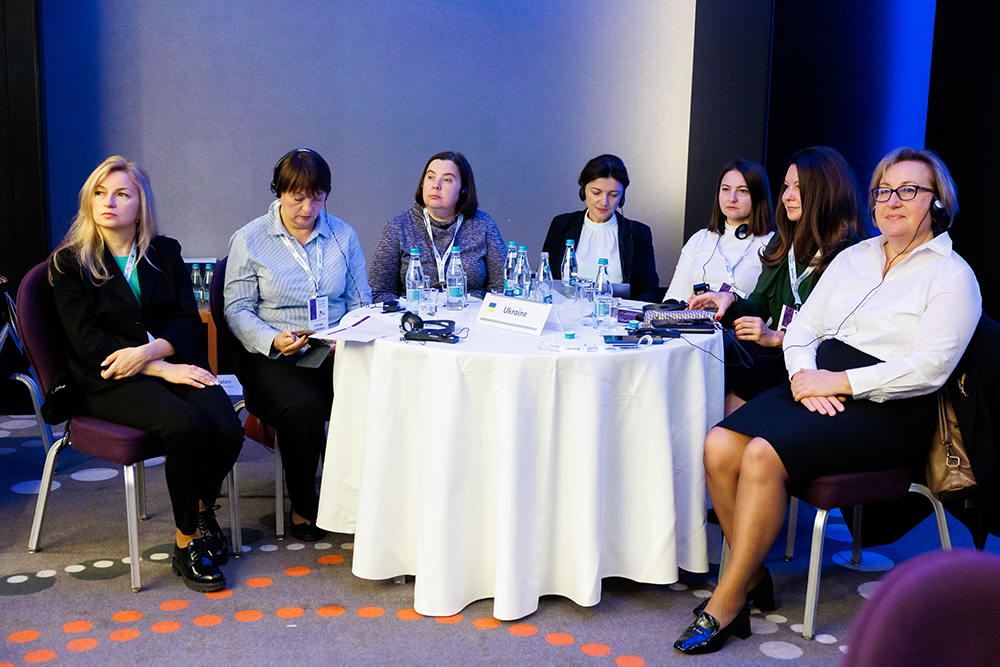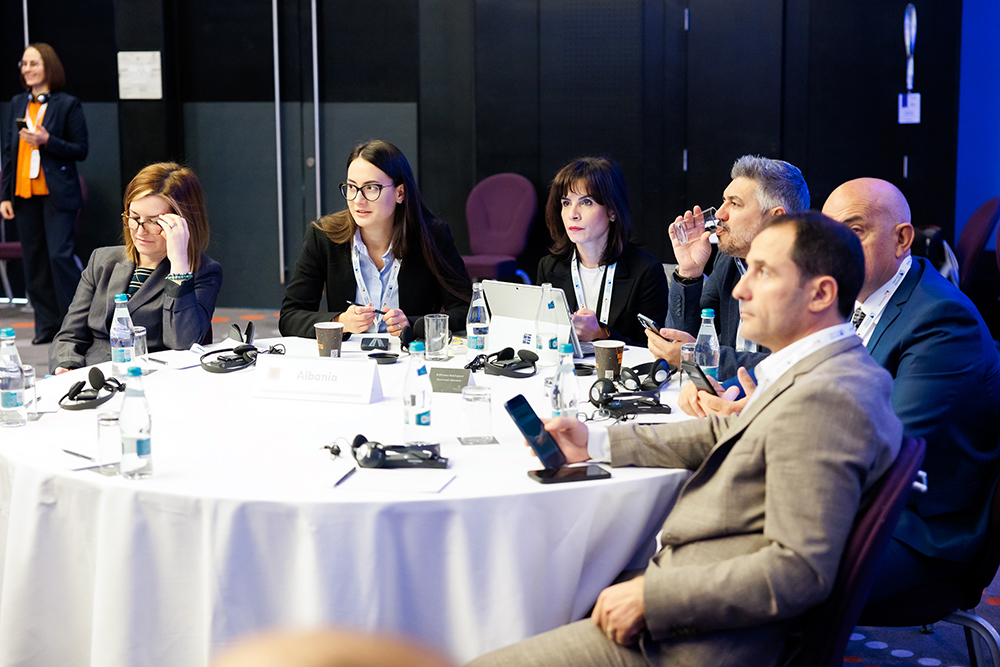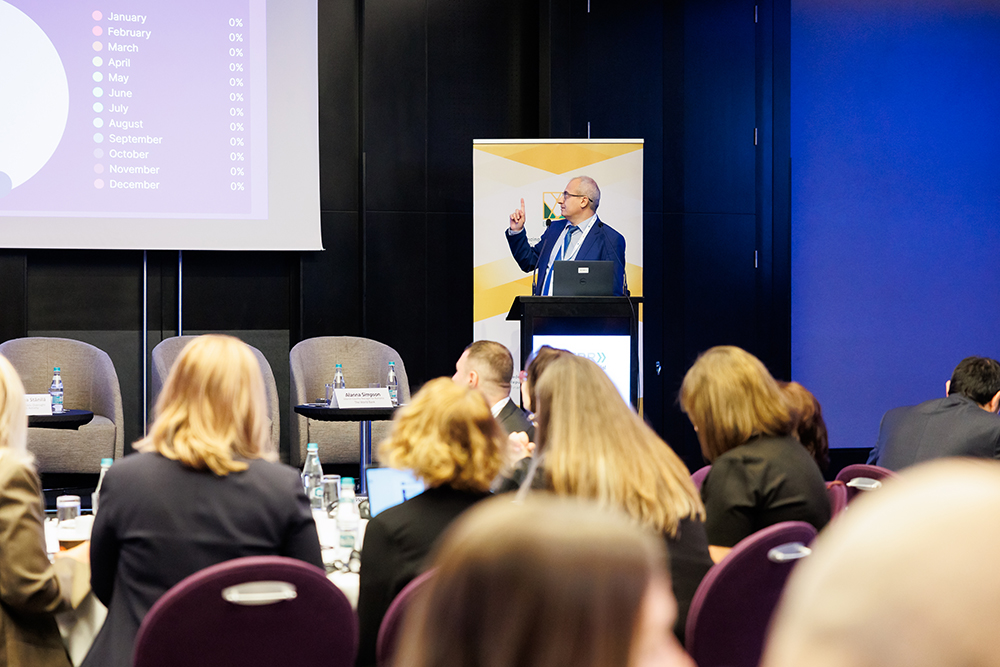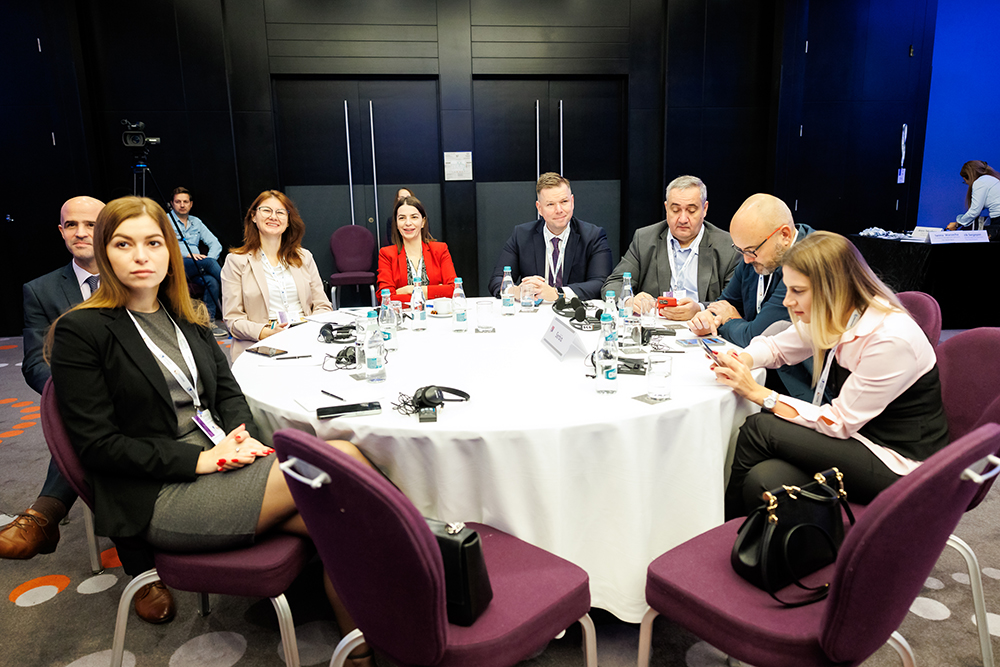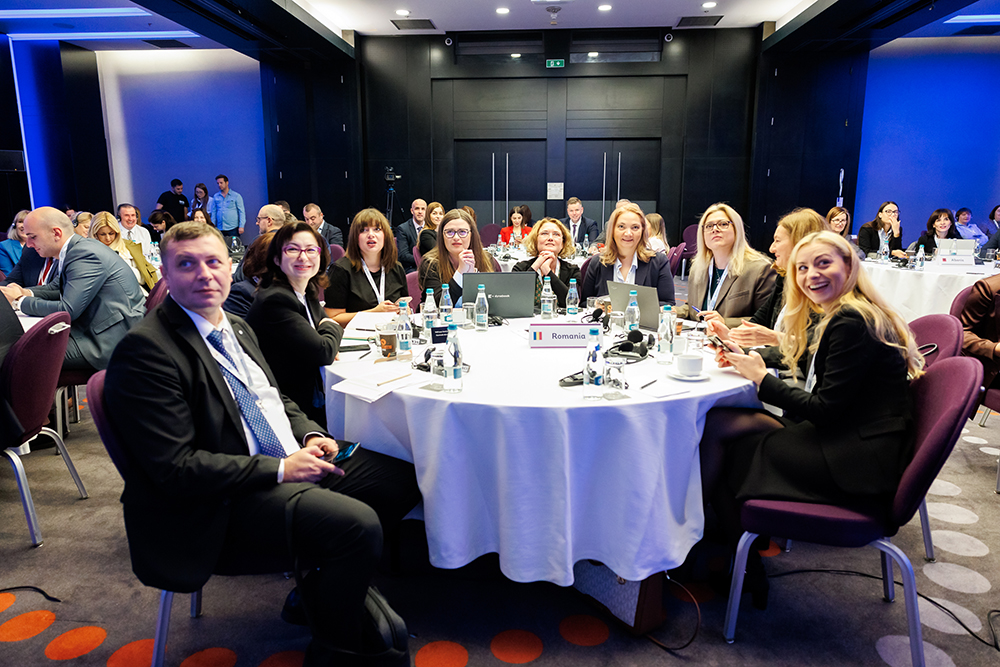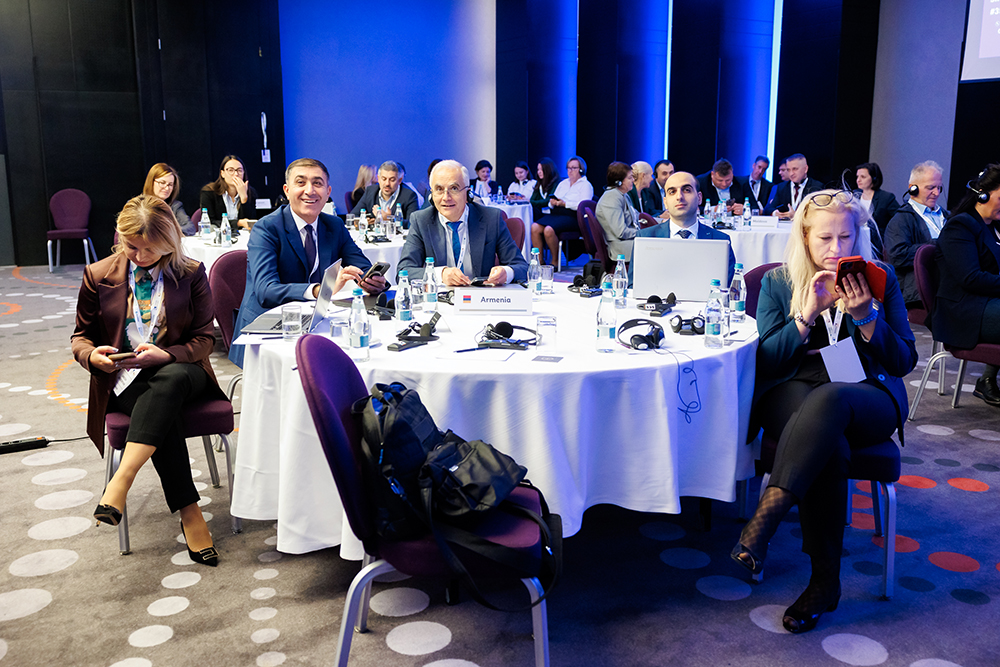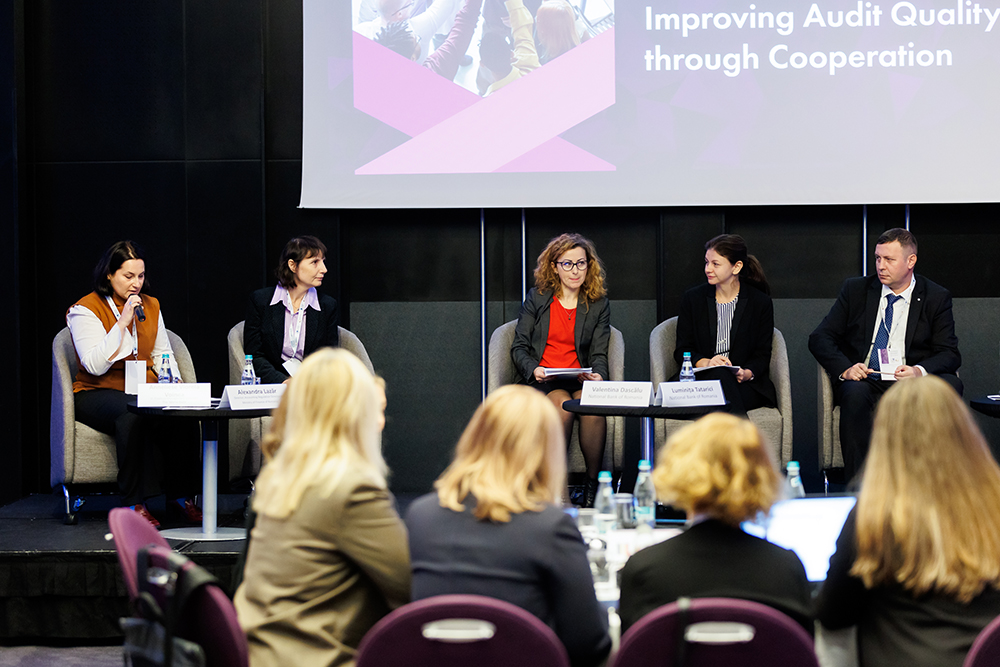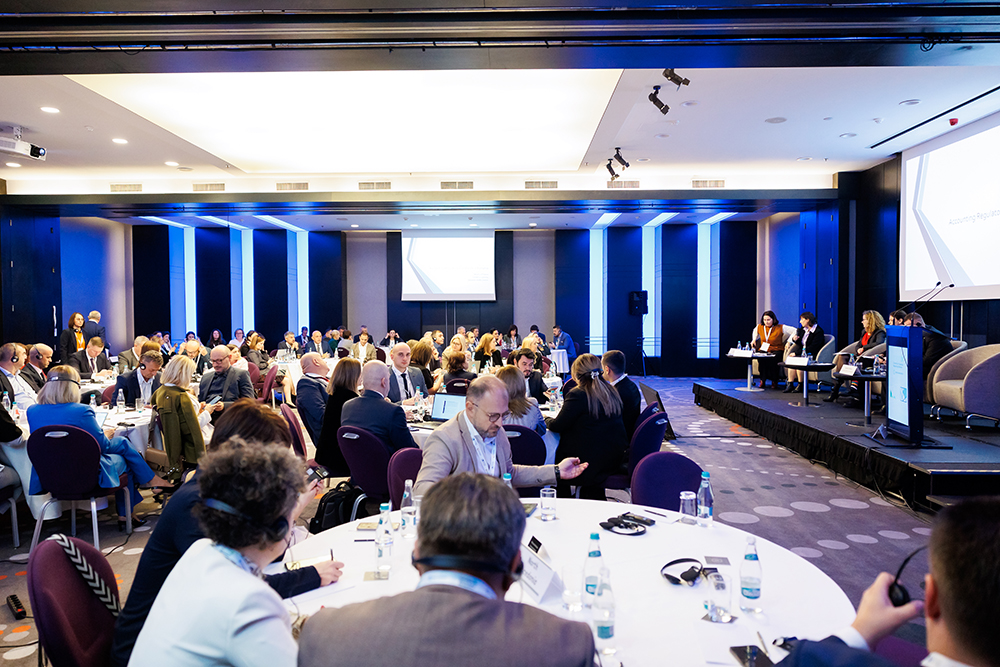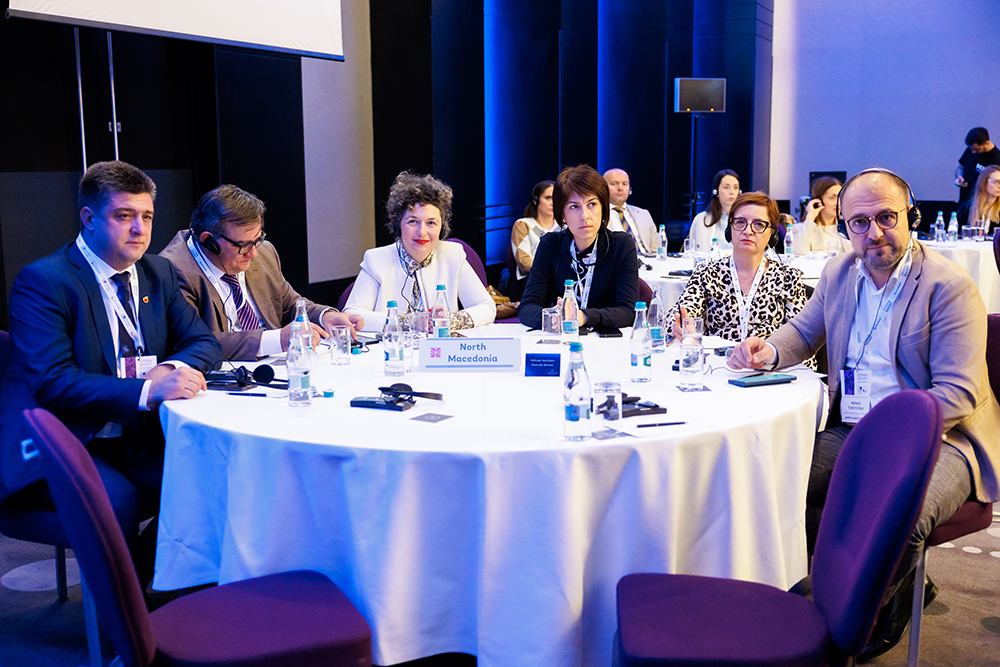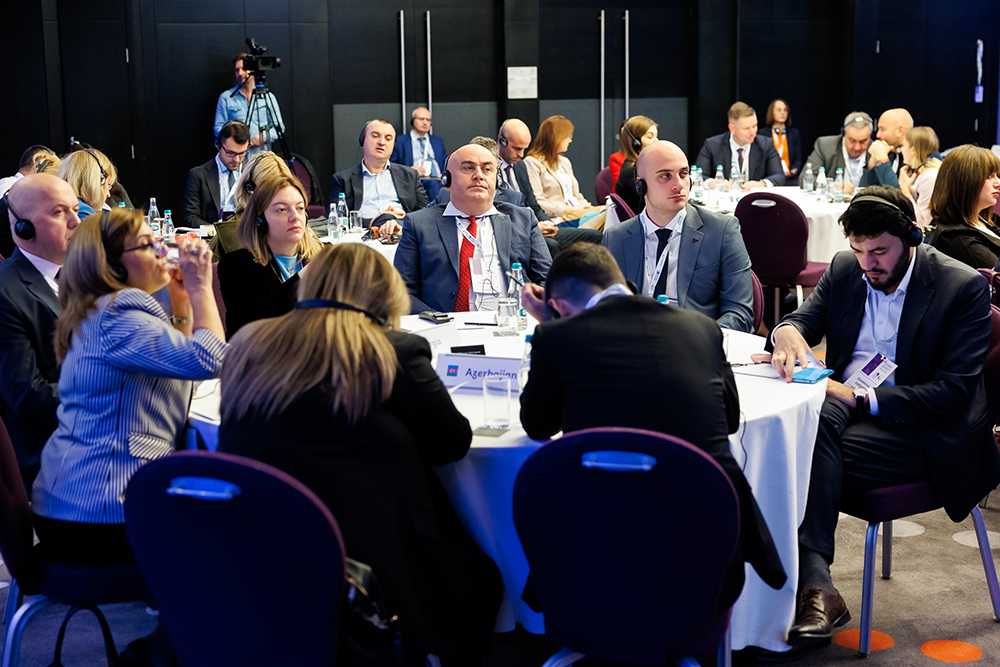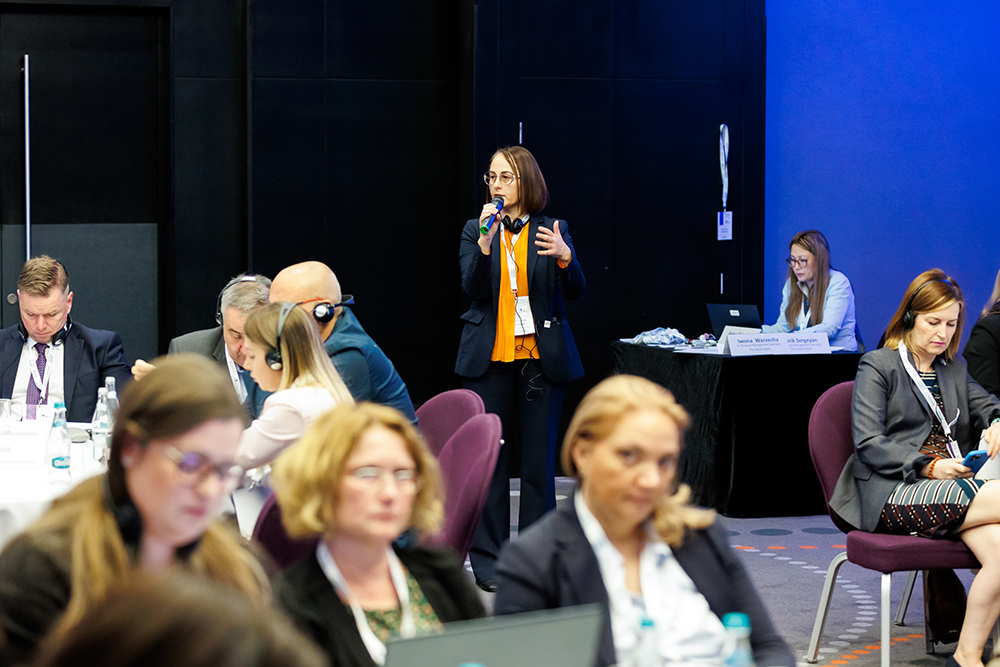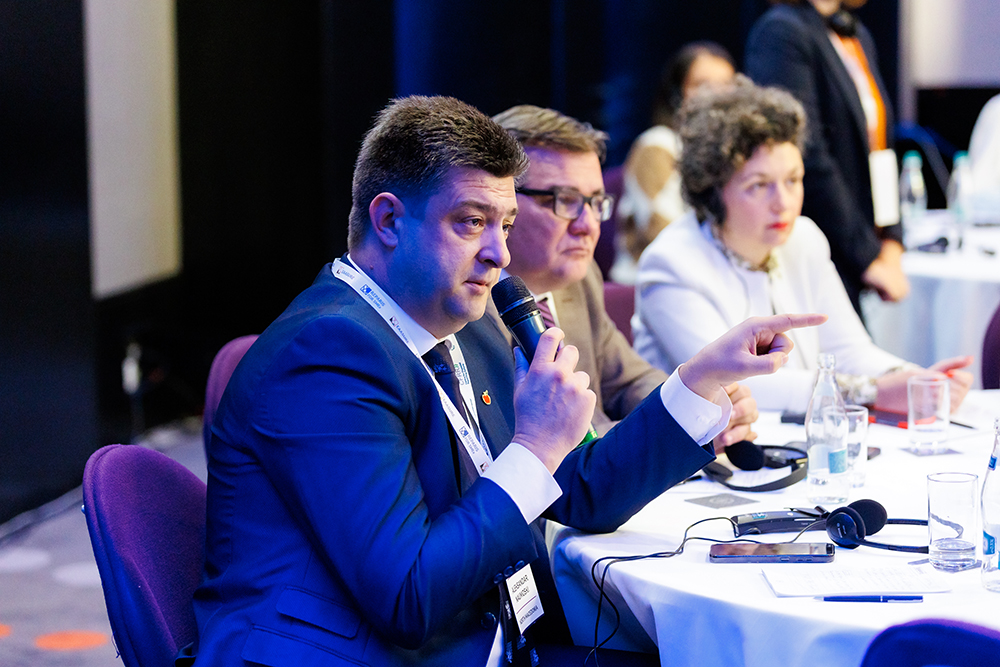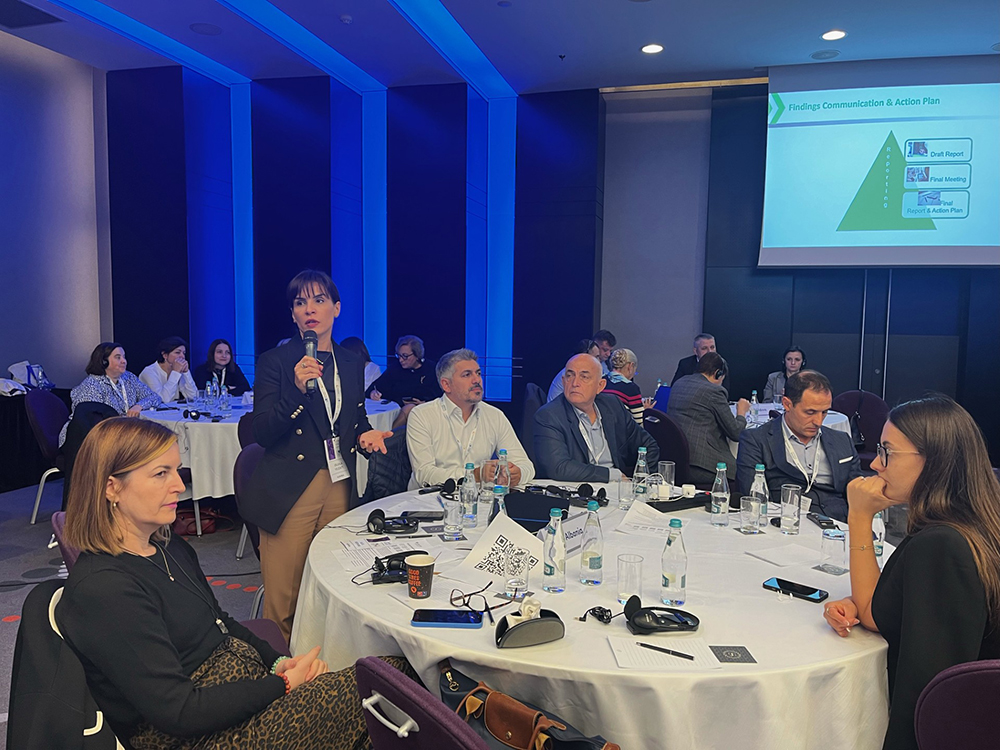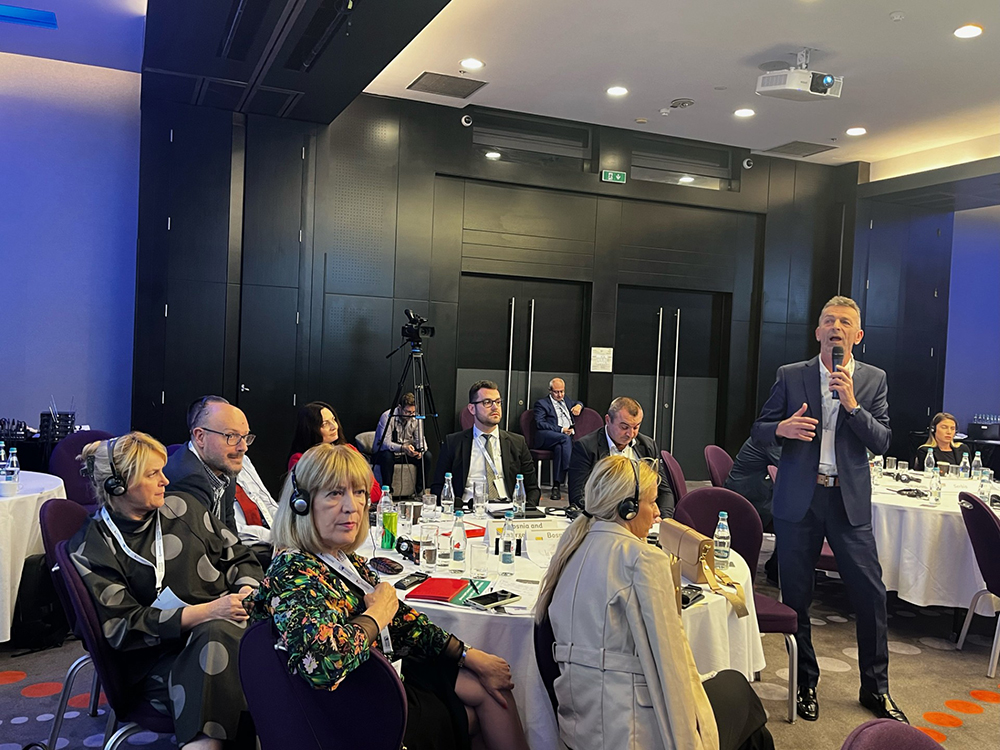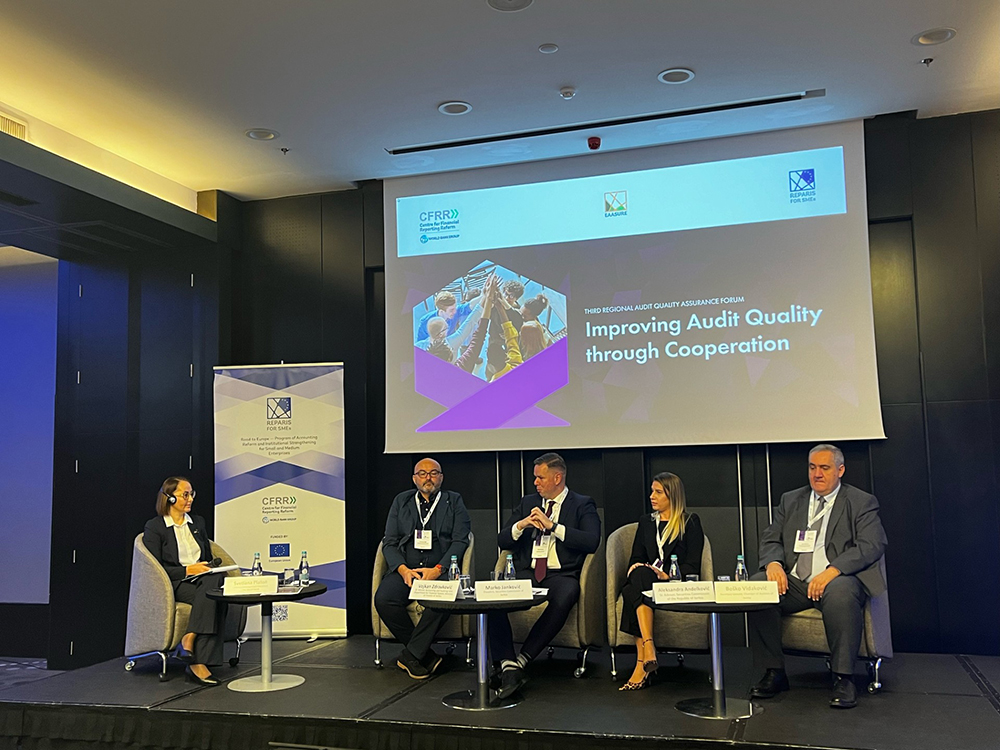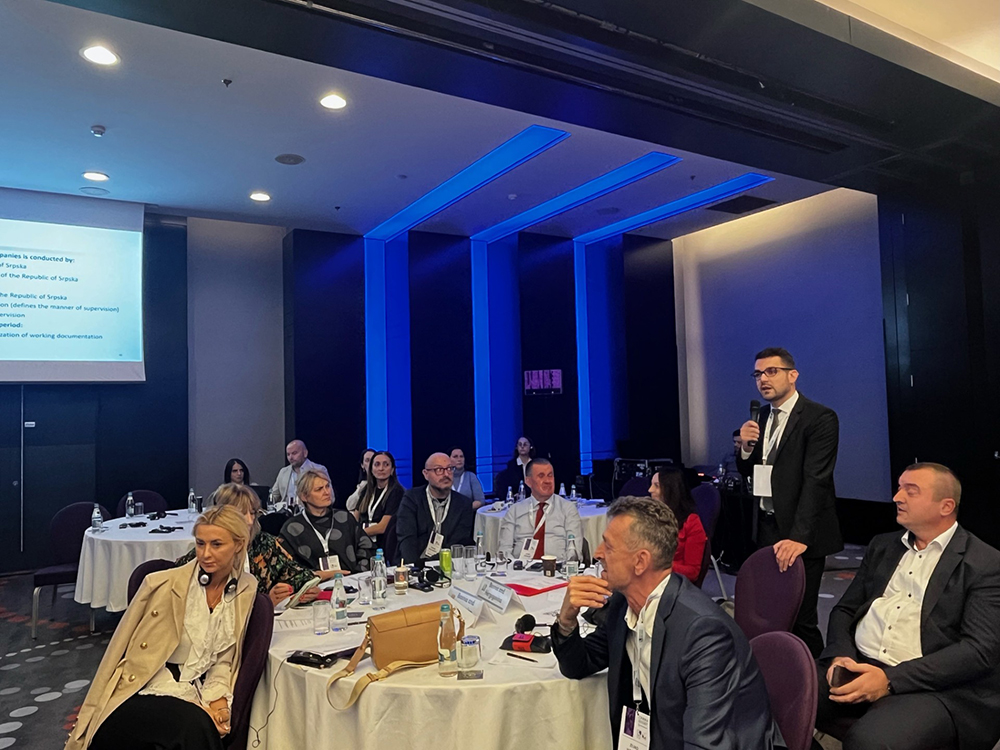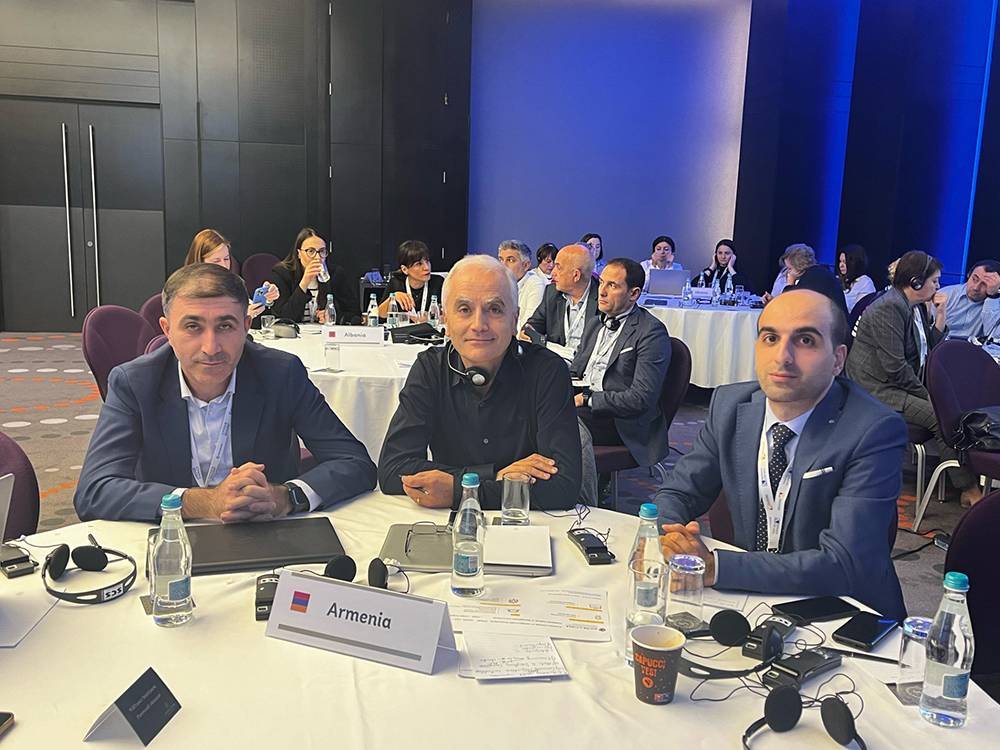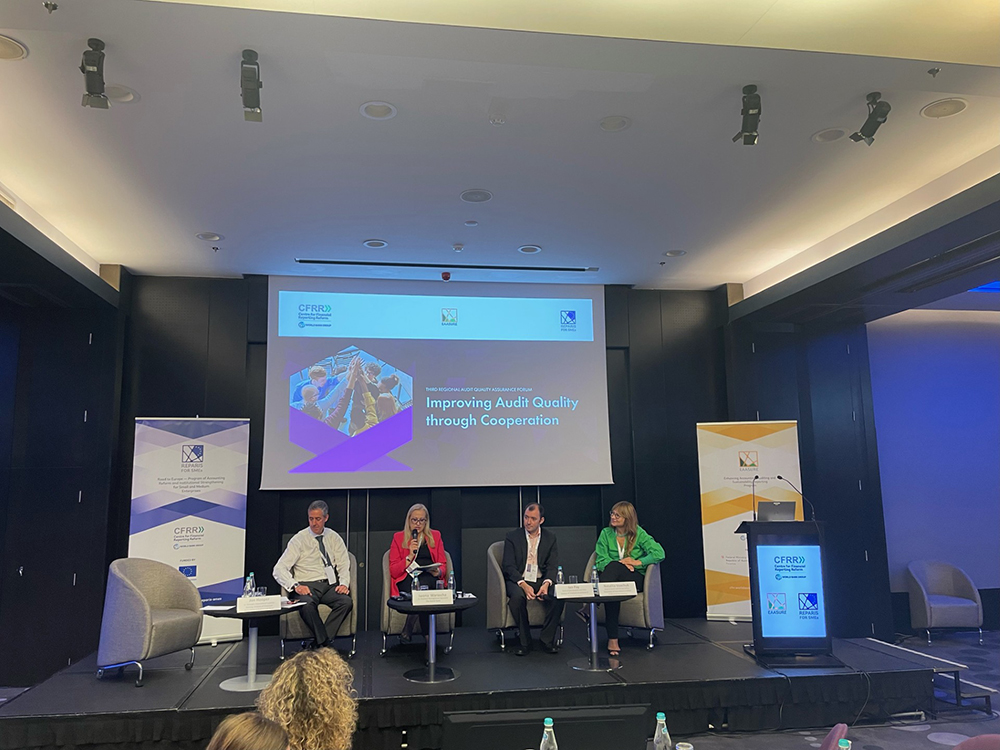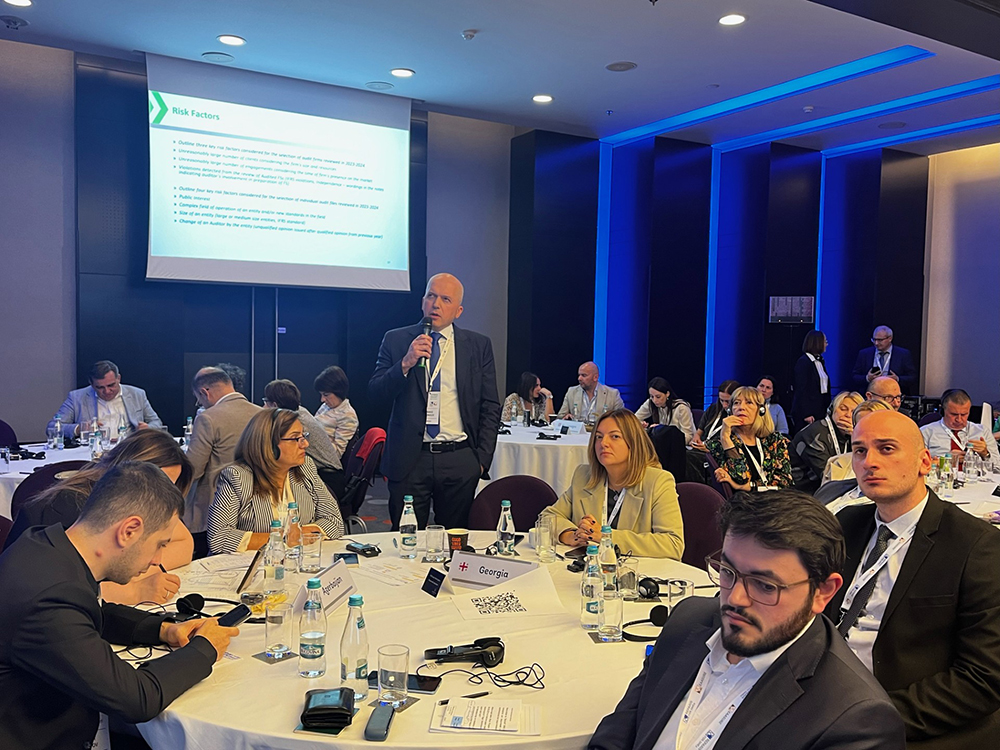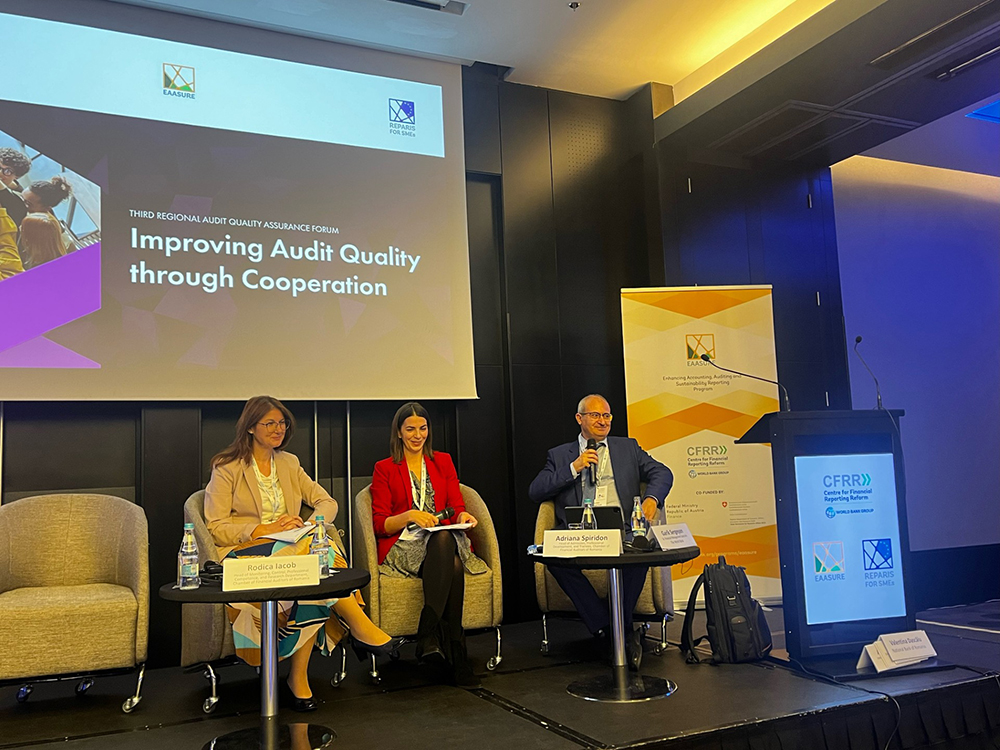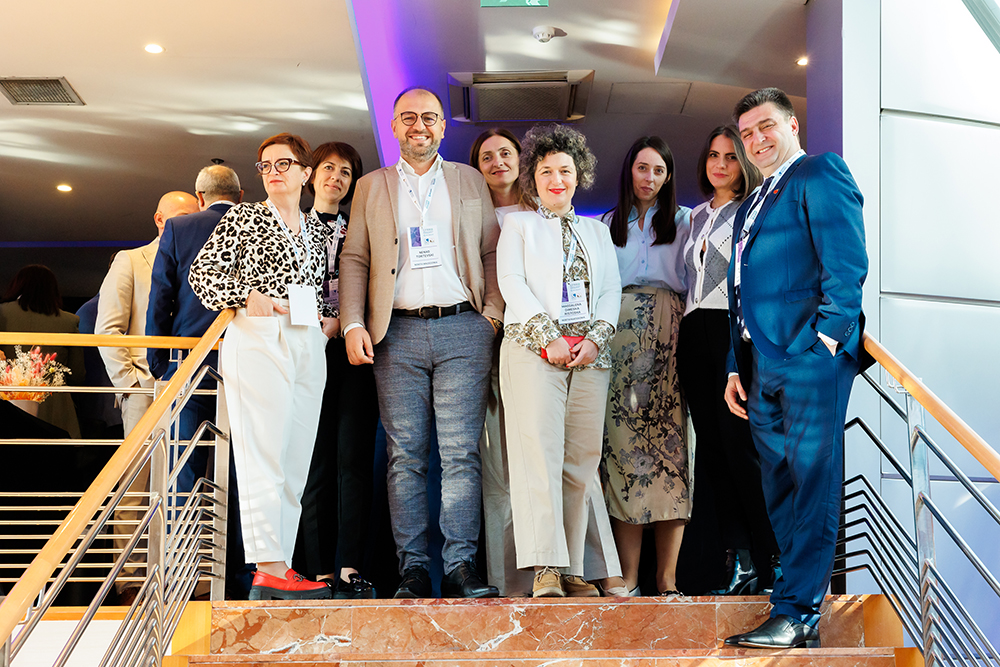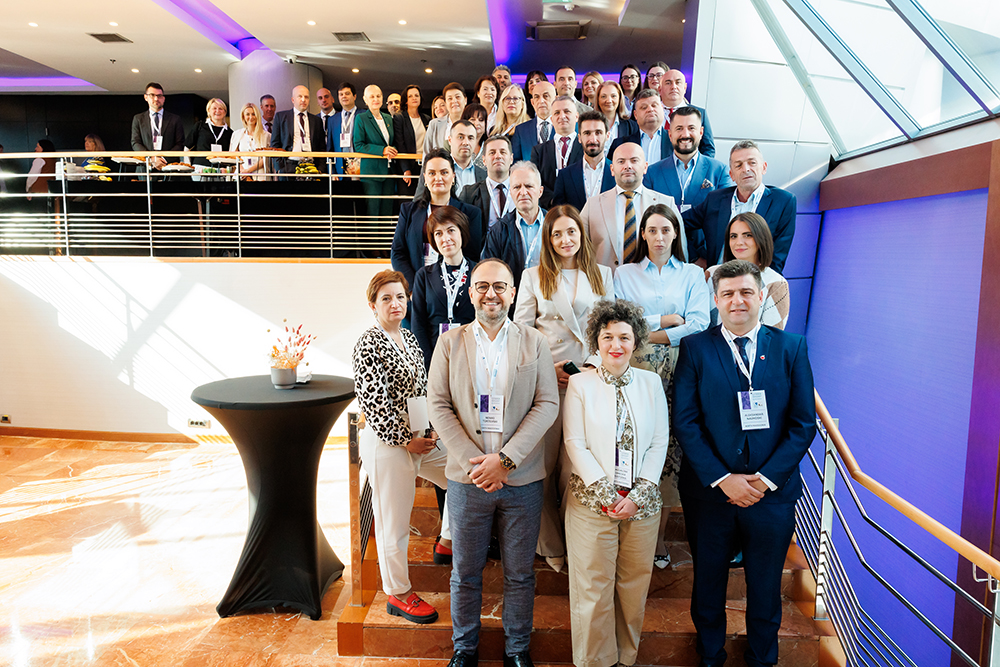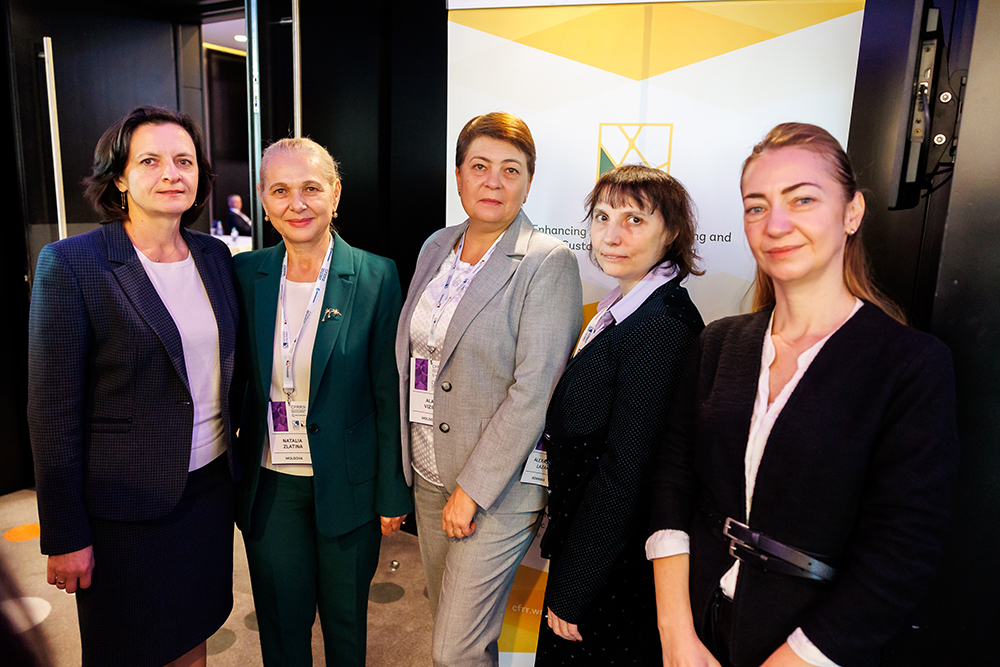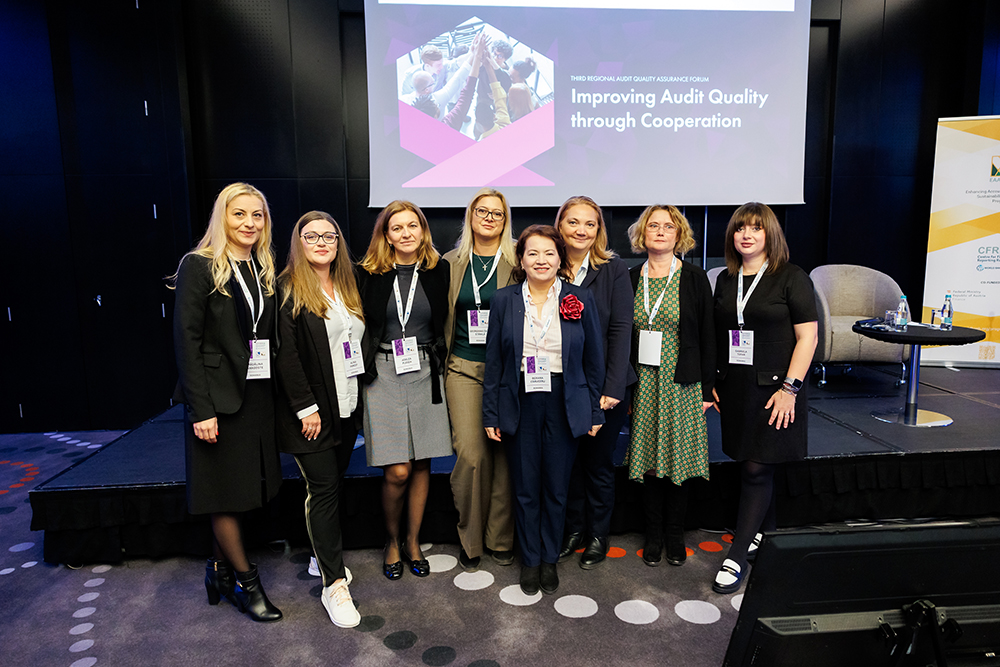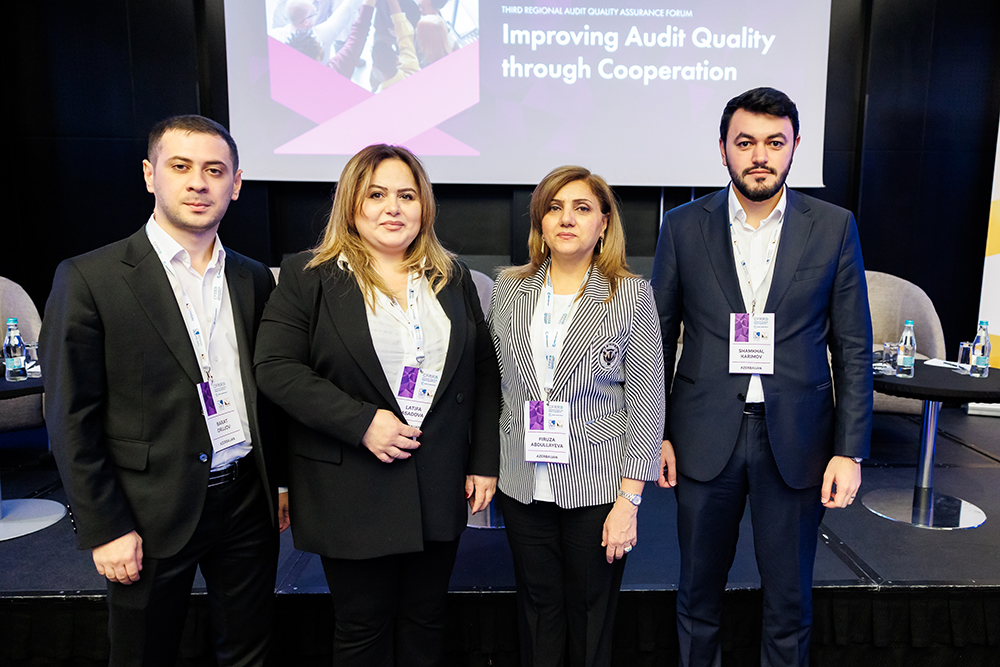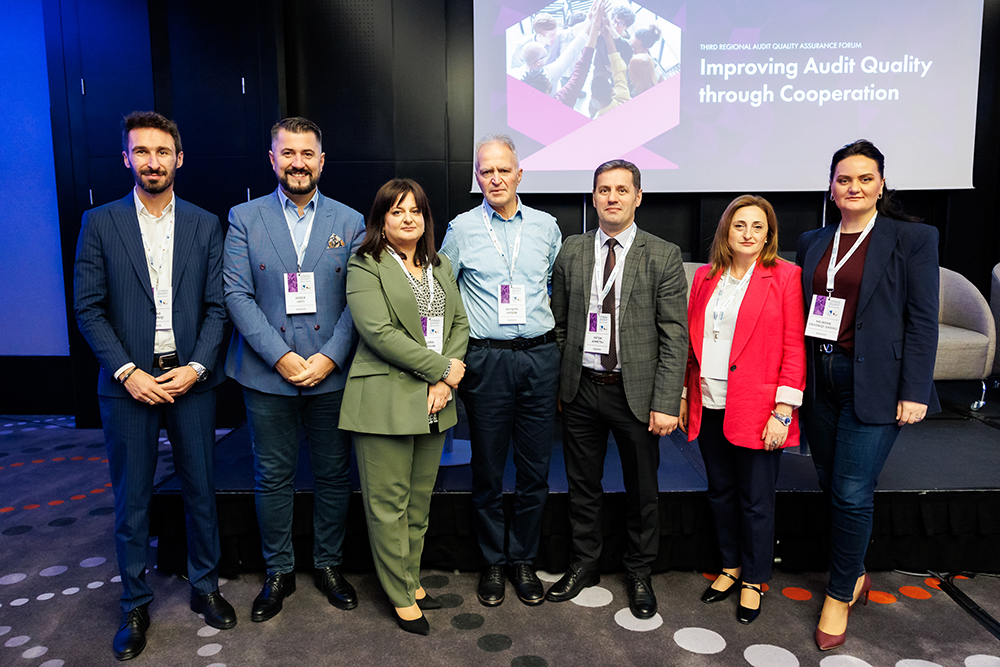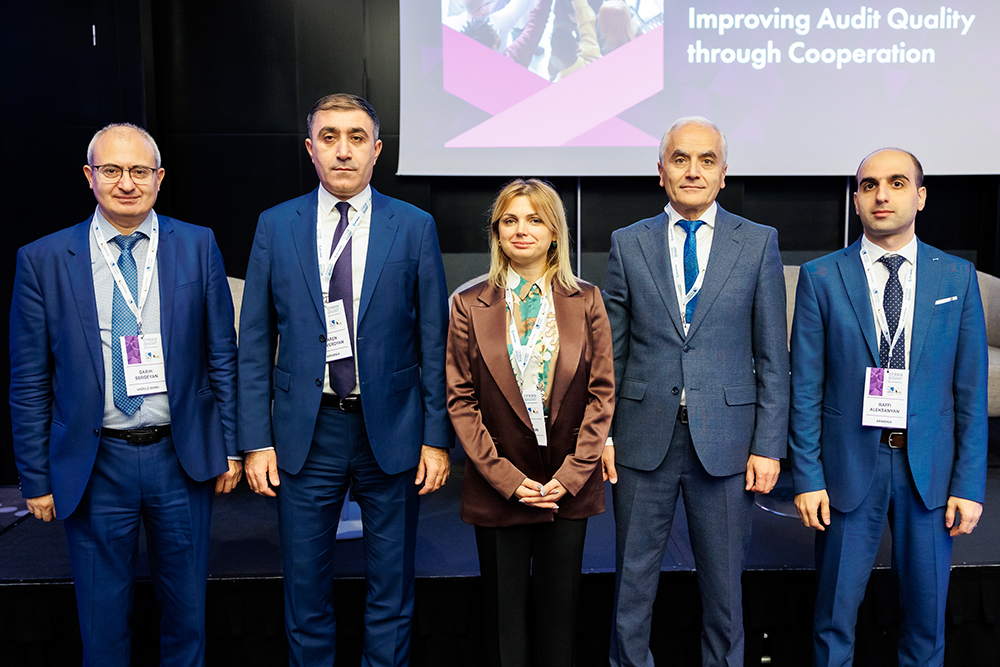The third Forum of Public Oversight Bodies (POB Forum) convened 63 participants from the beneficiary countries on October 22-23, 2024, in Bucharest Romania. The POB Forum is organized jointly under two regional programs of the World Bank Centre for Financial and Sustainability Reporting Reform (CFRR) based in Vienna, Austria: the Road to Europe Program of Accounting Reform and Strengthening Institutions for Small and Medium-sized Enterprises (REPARIS for SMEs) and the Enhancing Accounting, Auditing, and Sustainability Reporting (EAASURE) Program.
The POB Forum included representatives of ministries of finance responsible for accounting and audit legislation; executive staff, board members, and quality assurance inspectors of public audit oversight authorities; as well as representatives of professional accounting organizations (PAOs) with responsibilities delegated by a POB related to quality assurance or other tasks from 11 participating countries: Albania, Armenia, Azerbaijan, Bosnia and Herzegovina, Georgia, Kosovo, Moldova, Montenegro, North Macedonia, Serbia, and Ukraine.
The platform offered participants the opportunity to:
- Learn from the experience of Romania in transposing the European Union (EU) accounting and auditing acquis and institutionalizing a framework for audit oversight and quality assurance in line with EU provisions. In Romania, three key regulators have a role in corporate sector accounting, corporate financial and sustainability reporting, and auditing: the Ministry of Finance, the National Bank, and the Financial Supervisory Authority. The responsibilities in the field of statutory audit supervision are exercised by the Authority for Public Oversight of Statutory Audit Activity (ASPAAS) designated by the Ministry of Finance as the competent regulatory authority in the area of statutory audit and the supervision of financial auditors and audit firms in Romania. Selected functions are delegated to the Chamber of Financial Auditors of Romania (CAFR) and participants learned how these are implemented by the CAFR and supervised by the ASPAAS.
- Learn from the experience of Serbia in establishing a public oversight and quality assurance system. In Serbia, the public oversight system is established under the Securities Commission. A panel of experts, representing all three institutions involved in the public oversight system, the Ministry of Finance, the Securities Commission, and the Chamber of Auditors, explained the institutional arrangements, how the system works, and the existing challenges. A lesson learned from Serbia’s experience is that countries, particularly those with limited resources and capacity, should consider the existing structures and experience before establishing a new body or institution, i.e., where relevant, audit public oversight could be assigned to the Securities Commission or a similar regulator. Attracting and retaining professional quality assurance inspectors is a challenge (not only for participating countries). One solution discussed by the panel is to invest in people and provide incentives, including access to knowledge and training, to minimize staff turnover and retain personnel.
- Advance the discussion on the increasing role and impact of artificial intelligence (AI) in corporate financial reporting, audit, and quality assurance. The participants explored the opportunities for use of AI and its potential impact on the profession and the role of auditors from experts of the Institute of Chartered Accountants of England and Wales (ICAEW) and the Association of International Certified Professional Accountants (AICIPA&CIMA), both in terms of how AI is used to support audit processes, and the importance of robust approaches to reviewing clients’ use of AI in the context of the financial audit. The ethical and regulatory considerations when adopting AI were also discussed.
- Learn from each other on formulating remediation actions for significant findings identified by quality assurance inspections. As part of an interactive and participative session, each country delegation presented examples of findings from recent quality assurance inspections, covering both audits of public interest entities (PIEs) and non-PIEs, along with related remediation actions. Following each presentation, two invited experts, representing ASPAAS and the ICAEW provided feedback and insights, suggesting improvements where appropriate. The format of the session was very well received by participants and the community agreed to continue sharing examples and findings on different topic. Such an exercise allows learning from each other’s experiences, contributing to the enhancement of the quality of inspections and resulting in better quality audits and financial information.
The knowledge and experience gained from this event should: (i) support the further alignment of countries’ corporate financial reporting frameworks with relevant EU Directives and regulations, and (ii) improve the practice of identifying significant findings through quality assurance inspections and formulating appropriate remediation actions.
